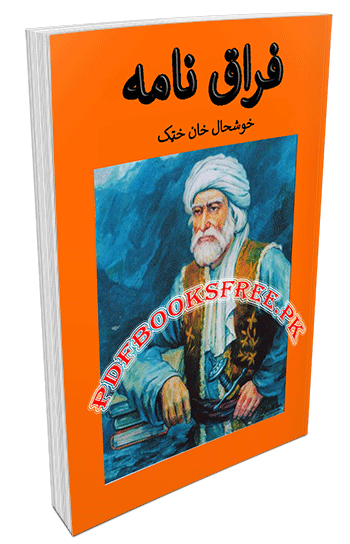Firaq Nama by Khushal Khan Khattak Pdf Free Download
Firaq Nama book authored by Khushal Khan Khattak. This book contains Pashto classic poetry and prose in the Pashto language. Khushal Khan had approximately five years of invaluable life after being imprisoned by the Mughals. Due to his most sensitive nature, he never let his pen stop and incessantly fed the literary flames to be alive even during that imprisonment.
“Firaq Nama” is the initial production of that literature of imprisonment, which has indubitably proved to be a foundation stone in the literature of imprisonment. In this book, Khushal Khan’s melodies of imprisonment are particularly highlighted in which he has remembered his region, namely Pakhtunkhwa, in different manners, which is not only an inception in the literature of imprisonment in Pashto but also an important literary asset of imprisonment, which enfolds a lot of historical incidents in itself.
Undoubtedly, Khushal Khan Khattak has introduced many new topics, genres and ideas in Pashto literature. In such a beautiful and expert way, these genres and subjects were made a part of Pashto literature that no one who is not aware of the history of Pashto literature could have imagined that these genres and subjects did not exist in Pashto literature before Khushal Khan. In all these subjects, genres and ideas, there is also a genre of “Habsiyat”.
Khushal Khan Baba founded the “Habsiyah literature” of the Pashto language during the Mughal captivity. Before this, there were no traces of “Habsiyat” in Pashto literature’s popular themes and genres. By the way, Khushal Baba has created a lot of excellent literature in organized prose in the prison of the Mughals, but only Habsiya Kalam has been included in this book. He wrote about the separation of Pakhtunkhwa, his homeland and his family.
Khushal Khan created a lot of literature during this period, but Faraq Nama is his first book written while imprisoned in the fort of Ranthambore. Fraq Nama consists of 144 pages, including a bibliography. In addition, the 16-page scholarly case written by Hamesh Khalil is also an adornment of this book. The book contains 28 ghazals and 25 Masnavis, making up about 1782 poems or 1546 Hemistich.
In this Masnavi, the fort of Ranthambore is mentioned when Khushal Baba, tired of being alone, comforted his heart by remembering the different cities of Pakhtunkhwa. The Masnavi mentions Kabul, Peshawar, Attock, Khattak, Sarai Akora and Lahore.
In the prison of India, Khushal Khan sang songs not only about the land, climate, rivers, trees, animals, mountains, maidens, Khattaks, Yousafzais, and birds of prey but also about his Immigrants, the Mughal rulers.
The point is that Faraqnameh is such an essence of Khushal Khan’s imprisonment incidents that we would not have this great book today if he had not had this accident.
Throughout this period, Khushal Khan Khattak created a lot of valuable and purposeful literature in poetry and prose, which is not only the basis of “behind-the-scenes literature” in Pashto but also a valuable asset. And since this unfortunate incident, the terms “Mughalwala” and “Ranthambore” have been used in Pashto literature to signify Mughal oppression.
Pashto’s poetry book “Firaqnama” is now available in the Pakistan virtual library in a high-quality PDF document for our visitors to study. Check out the following links to read online or download the complete book in PDF format and enjoy offline reading on your computer and smartphone.

